- August 31, 2016
- Posted by: Dave Kurlan
- Category: Understanding the Sales Force
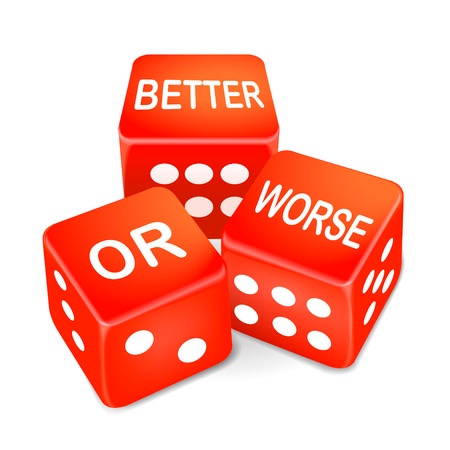
Millennials are more independent, more spoiled, have a shorter attention span, tend to be more into their technology than into people, don’t like working traditional hours, and don’t enjoy working in traditional ways. That said, would you expect them to be better or worse suited for selling than the generations who came before them?
I took to the data to see what story it might tell. I found data on more than 43,000 millennials in sales and here is what I learned. This information should be very helpful for hiring new salespeople and developing them as well.
To get a sense for the actual comparison, I looked at four data sets:
- All Millennials
- The Top 10% of Millennials
- The Top 10% of Salespeople with 10+ years in sales and in their industry
- All Salespeople with 10+ years in sales and in their industry
So how do Millennials compare?
Chris Mott, my trusted colleague and friend, specified the first dashboard – how all millennials scored. Sales Quotient, the overall score, is shown in the top right corner. 108 is weak. Sales DNA, the combination of strengths, is shown in the middle. 61 represents a salesperson that will not be able to execute sales process, strategies, skills and tactics because the strengths are actually weaknesses. Commitment, the willingness to do what it takes to achieve greater success in sales is shown in the upper left hand section. 53% represents a lack of commitment. You’ll notice that Handling Rejection and Relationship Building are the only two areas where millennials scored well in the areas of Sales DNA and Selling Competencies. Scroll down for more.
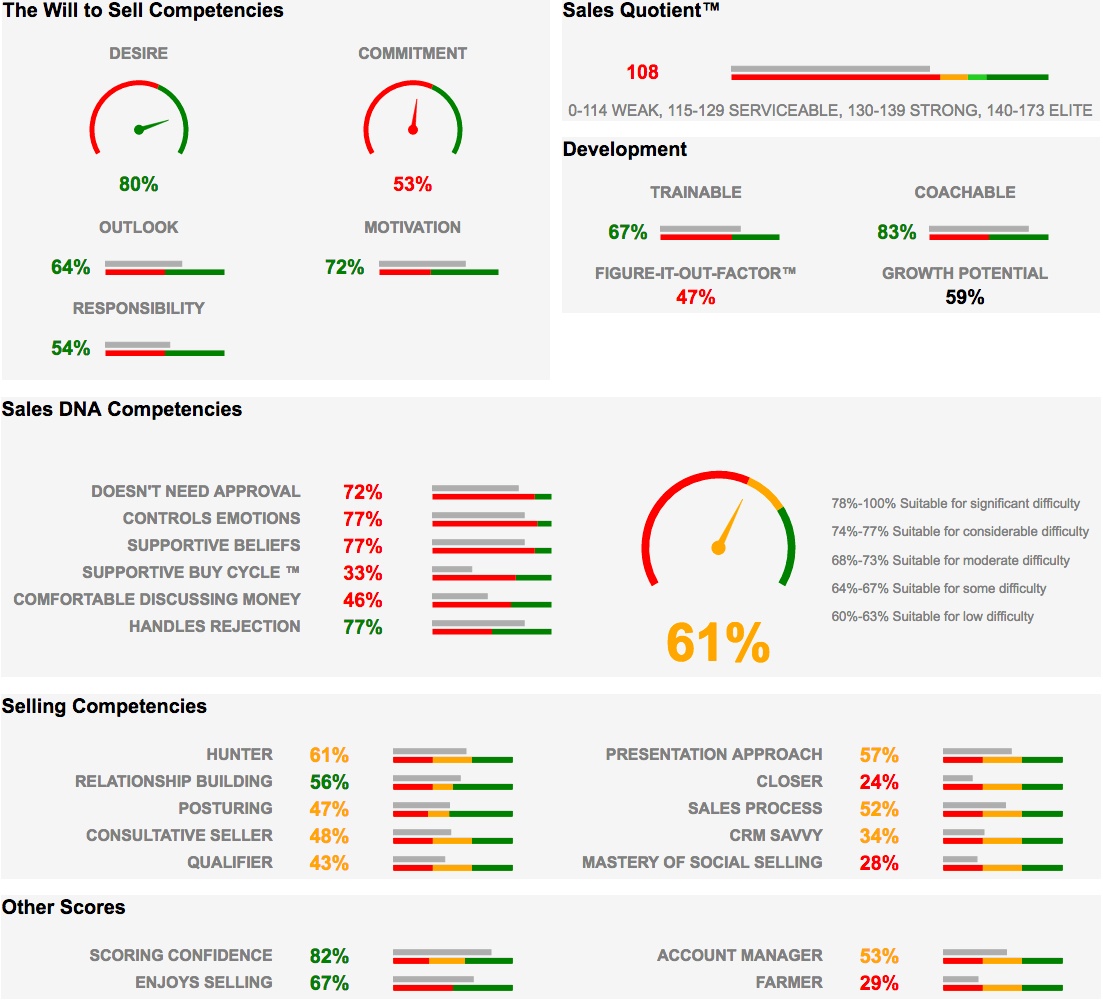
After Chris showed me the first dashboard, I populated the next dashboard with veteran salespeople with 10 or more years in sales. You can see that as a group, they have higher scores in all of the areas we discussed relative to the previous dashboard, except – and this is a head turner – Relationship Building! Who could have seen that coming? Interestingly, they score 39% on Responsibility which means they are twice more likely to make excuses than their younger colleagues. In this comparison, based on their Sales Quotients, the older salespeople are at least serviceable while the Millennials are simply weak. Scroll down for more.
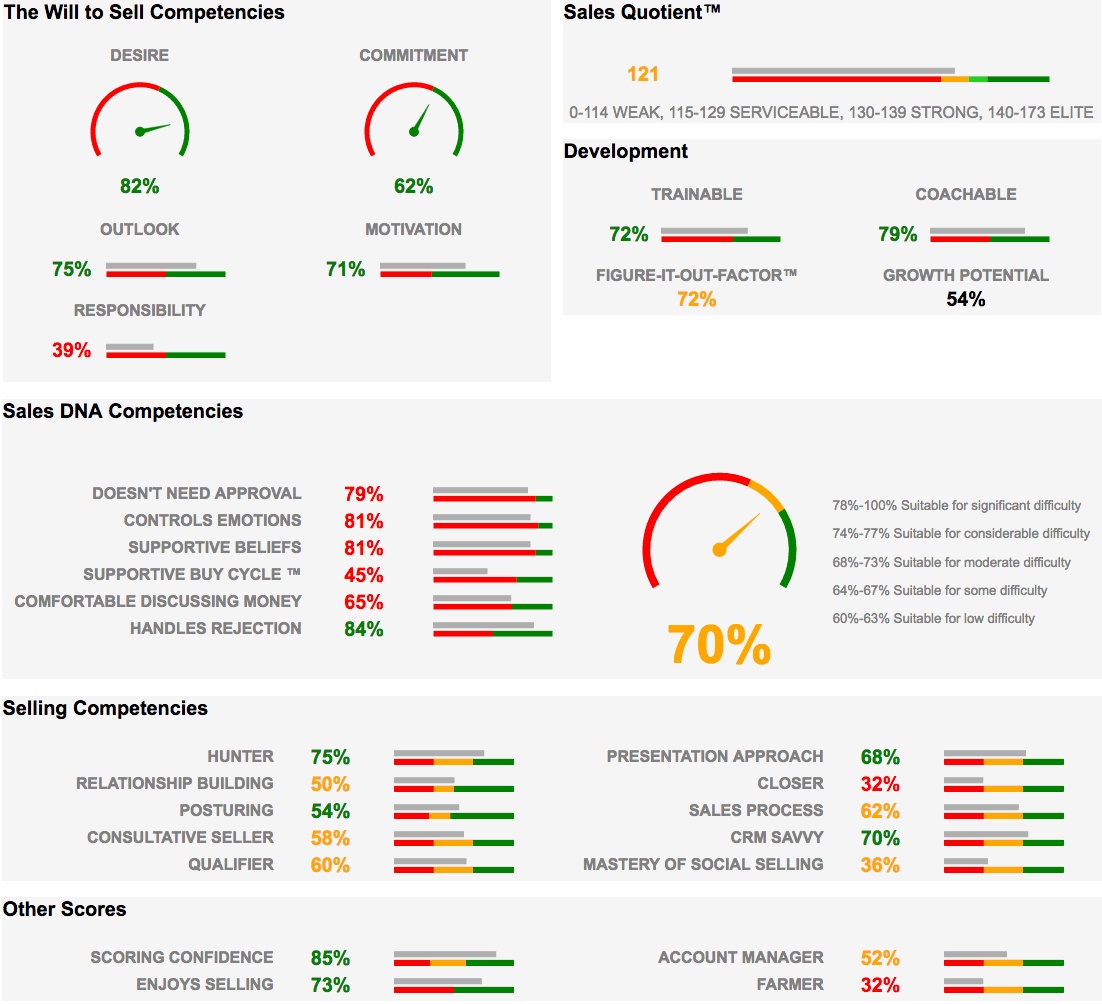
The third dashboard represents veteran salespeople again, but this time only the top 10%. As you can see, the top 10% are elite, with Sales Quotients averaging 142 and Sales DNA averaging 83. Nearly every score is in the green and all of the scores are higher than either of the two prior groups. These are the salespeople you want to hire! And wherever possible, you want to coach up your existing salespeople to be like the top 10%. Scroll down for more.
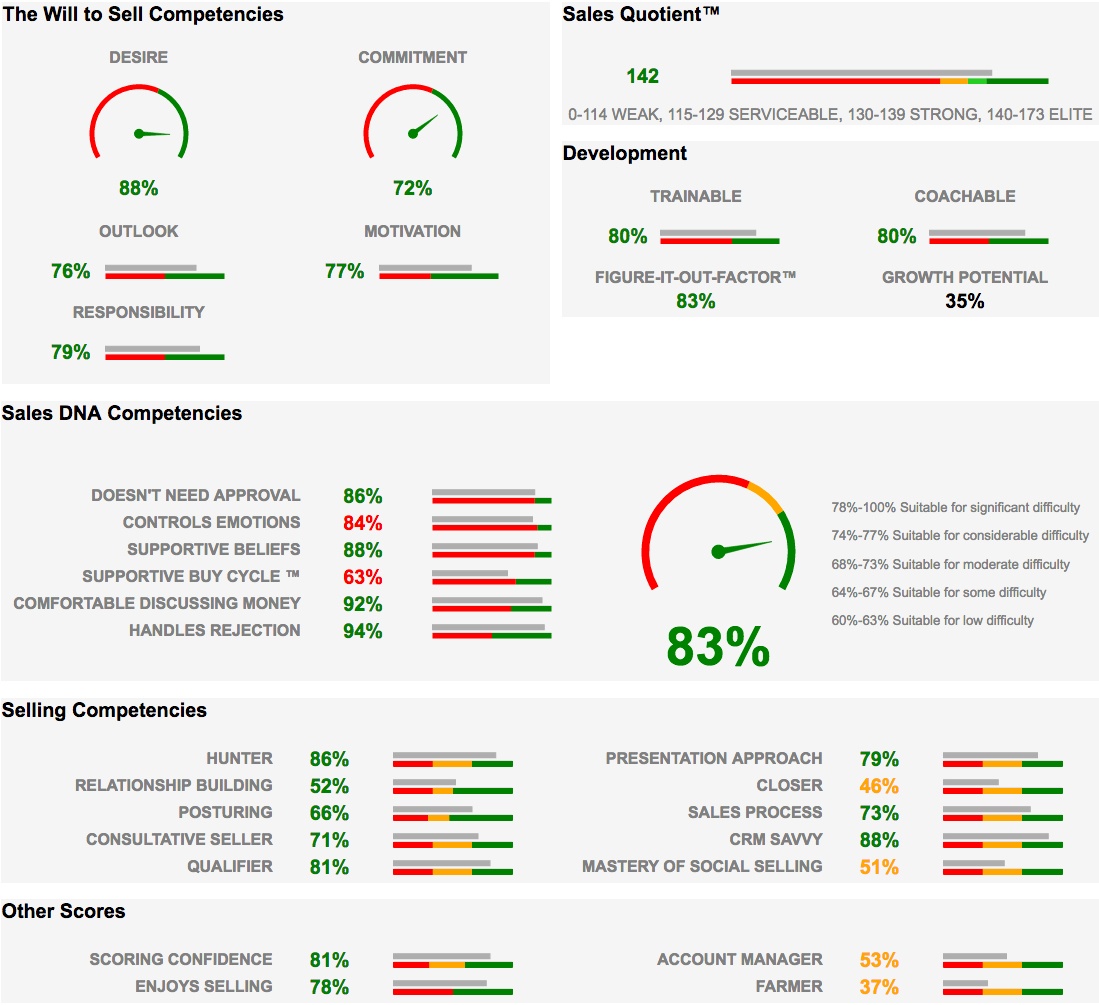
The fourth dashboard represents the Top 10% of Millennials. It isn’t very different from the top 10% of Veteran Salespeople with the notable exception of their respective scores for Figure-it-Out-Factor, or how quickly they will ramp up. Notice the low score on Relationship Building! This group scores the highest on Desire, Responsibility, Outlook, Sales DNA and Coachable!! Scroll down for more.
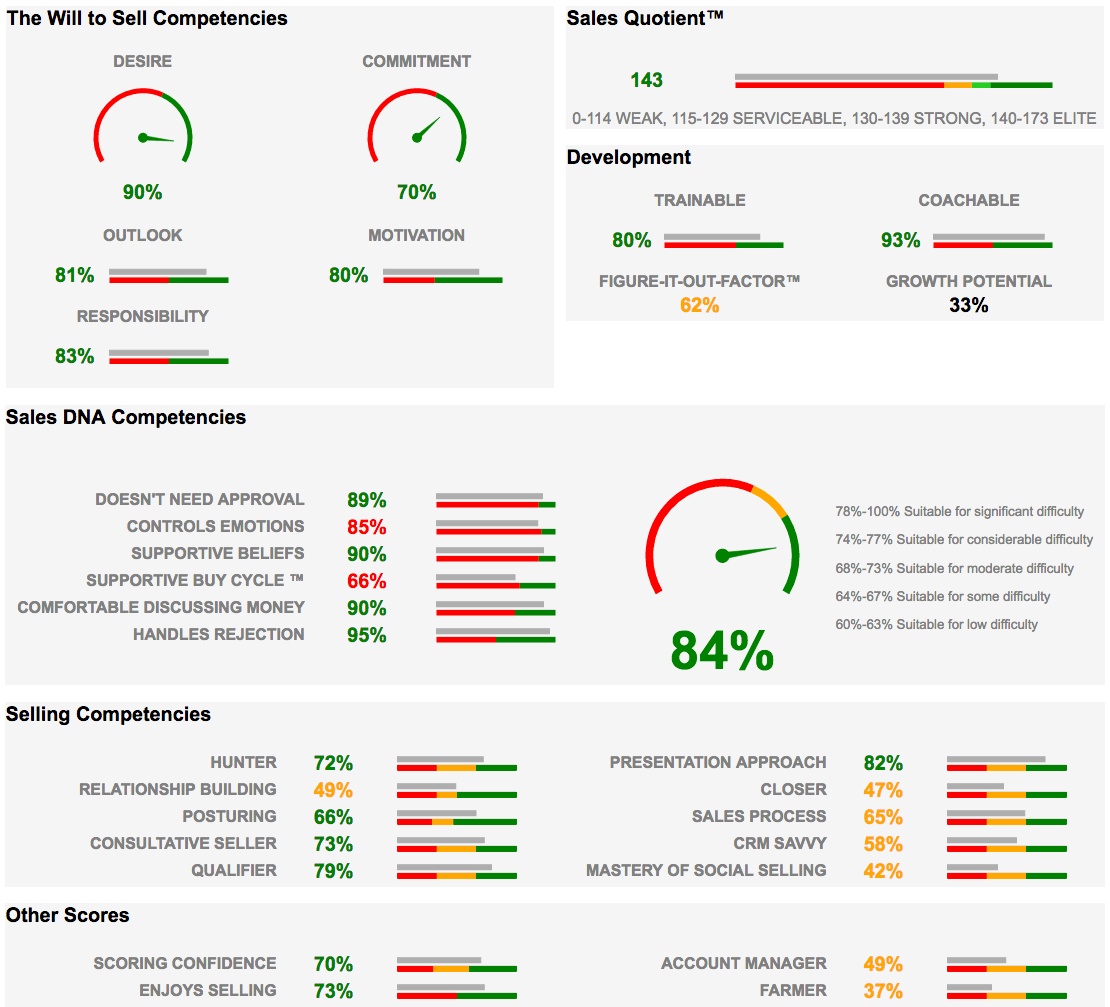
It should be clear from this comparison that overall, Millennials are not a great choice for sales. However, the Top 10% of Millennials are an excellent choice for sales! So the million dollar question is, when you are hiring salespeople, and millennials are in the mix, how do you determine whether they are millennials of the 108 Sales Quotient or of the 143 Sales Quotient?
I apologize. That was a trick question. As you can see from the dashboard of all Veteran salespeople, that group only averages a 121 on Sales Quotient. It shouldn’t matter whether millennials are in the mix or not. You need the ability to differentiate between the 140’s, 120’s and 100’s with every candidate, and do it as early in the sales recruiting process as possible. Weed out the undesirable sales candidates in the very first step! So how can you tell whether you have a 140 or a 108? Use Objective Management Group’s accurate and predictive sales candidate assessments. They’re built on science and customizable for your business and selling role.
